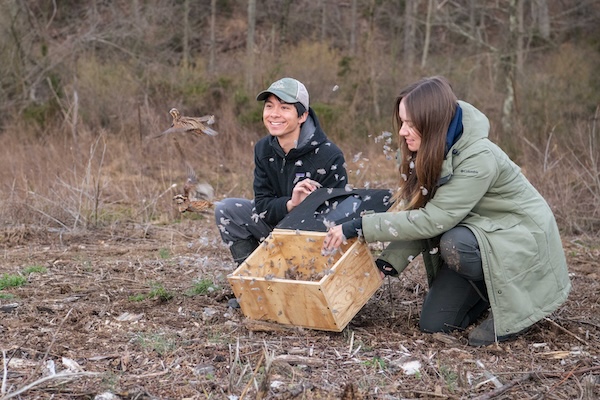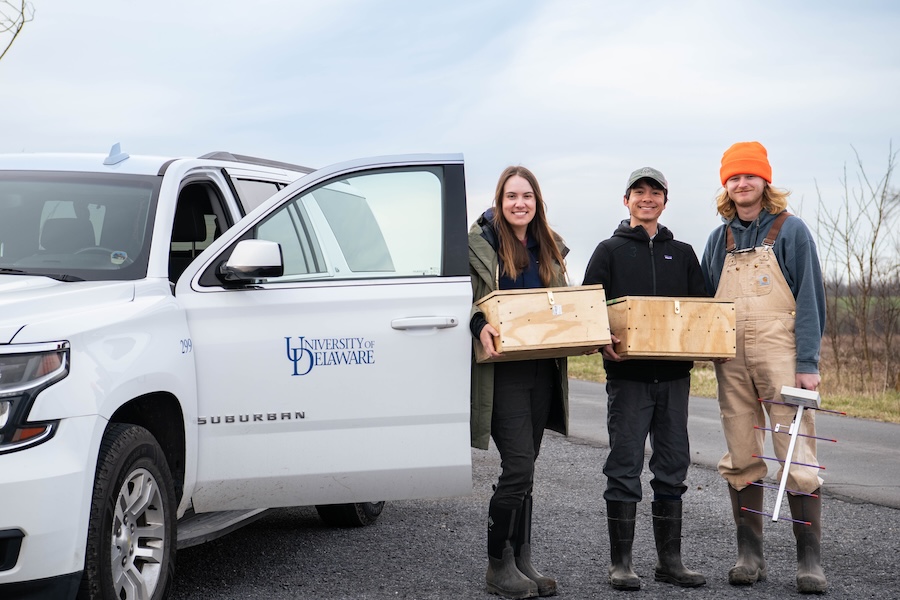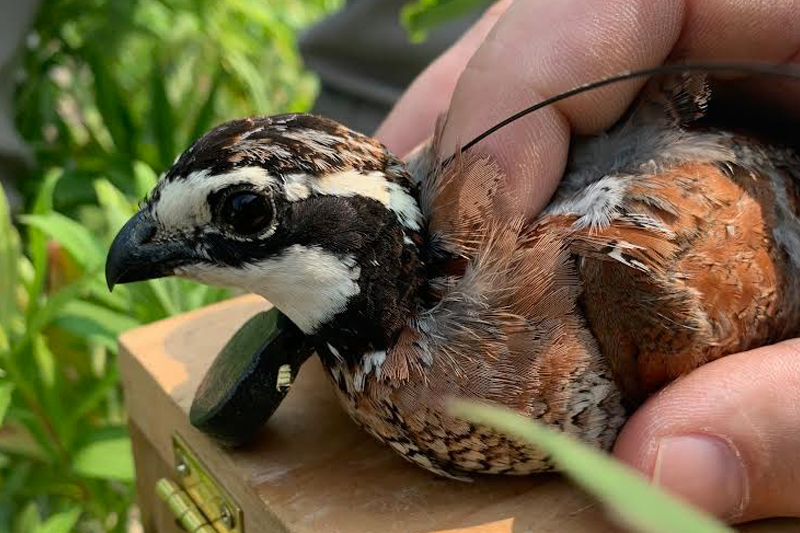
Category: Entomology and Wildlife Ecology

Reviving bobwhite quail
April 11, 2024 Written by Nya Wynn | Photos courtesy of Joshua Shinn and John Hendell
University of Delaware faculty and students are bringing bobwhite quail back to Pennsylvania. Working with the Pennsylvania Game Commission, UD is playing a key role in a reintroduction project at Letterkenny Army Depot habitat in Franklin County.
Bobwhite quail, although once native to Pennsylvania, had steadily decreasing populations over the past 60 years, until eventually going extinct from the area. This extinction was largely due to changes in land use patterns. More modern farming techniques cut down on the usage of hedgerows and trees between crops—areas where quail could thrive.
“Quail really like that interspersion of grassland and forest because they use both,” said Jeff Buler, professor of wildlife ecology. “Woody cover protects them from weather and predators but they need grassland habitat for seed and insect food as well as night roosting and nesting.”
According to Chris Williams, professor of wildlife ecology and director of the Waterfowl and Upland Gamebird Center, the team at Letterkenny worked for more than five years setting everything up to be just right for the quail’s momentous return.
“They did a lot of work to reestablish grasslands and early successional habitat, which was originally there,” Williams said. “We had quail specialists from around the county visit Letterkenny to keep evaluating the landscape until they felt comfortable that quality bobwhite habitat had been re-established.”
To reestablish the extinct bobwhite, birds are being translocated from three locations: Fort Barfort in Virginia, Fort Knox in Kentucky, and Tall Timbers Research Station and Land Conservancy in northern Florida.

“We have high hopes for the restored habitat and we’re really excited to explore how birds from these different places behave in their new home,” Williams said.
UD graduate student Kai Victor is researching the reintroduced bobwhite ecology as is undergraduate student John Hendell, who currently works with the Motus Wildlife Tracking System that will be employed for the reintroduction project.
They will continue to monitor the quail, along with graduate student Grace Muenchs who will research songbird use of the restored habitat. Victor and Muenchs will be using tracking technology to monitor habitat use, nesting success, and survival of the different bird species. surrounding ecosystem.
“At the moment we opened up the boxes and released the bobwhite into the wild, there was an extreme sense of excitement and pride that we are helping to restore the ecosystem to what it once was,” Williams said.
Over the three years of the project Kai Victor will continue to assist in more bobwhite releases and monitor their success. The hope for the project is that valuable information will be found to assist with future population growth of the bobwhite and once again support the long term growth of this once extinct species.

